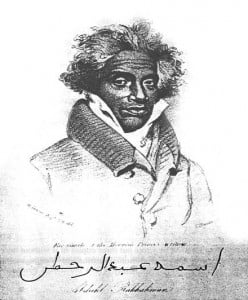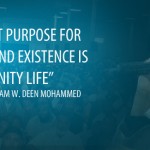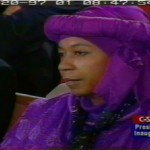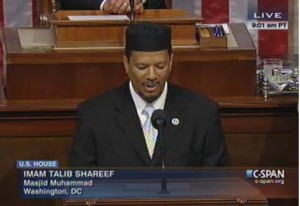Muslim History Detective’s log, 2/26/2014

On a jubilant Boston afternoon in August of 1828, David Walker – an African-American merchant, civil rights activist and fierce abolitionist – delivered an intense toast at a banquet in honor of Abdul Rahman Ibrahima ibn Sori, a West-African born Muslim and prince who had been enslaved in the United States for 40 years.
Now a freedman – in part as a result of the direct intercession of President John Quincy Adams – Abdul Rahman arrived in the East Coast city as part of a several-states journey to raise money to free his children and grandchildren from slavery. Having already purchased his wife’s freedom, he now wanted to reunite the rest of his family so that they could all depart the country together for a new start in Africa.
The prince traveled to Boston by way of steamboat and stage coach, tirelessly practicing, all along the way, the Qur’anic Arabic skills he perfected in Africa when he was but a young boy. Abdul Rahman knew that showcasing this skillset could lead to opportunities to help him free his family. His early Islamic training served him well before. Why not one more time? After all, a letter he penned in Arabic two years earlier, quoting passages from the Qur’an, had led to a series of fortunate events culminating in his own freedom.
During Abdul Rahman’s weeks-long visit to Boston that summer nearly 200 years ago, the African-American community there rallied around his mission to raise funds for his family’s freedom. They considered him to be a “fellow countryman” and a “great and noble patriot.” Some of them even took time out of their daily routines to escort him around the city.
They also feted him in a grand fashion. “Fifty of the most respectable colored citizens of Boston have associated themselves together for the purpose of giving the African Prince, Abduhl Rahaman, a public dinner tomorrow,” the Salem Gazette and Newburyport Herald reported on August 19, 1828. But the influential citizens of color did not stop there in their support of him. They also organized a celebratory parade for the prince to immediately precede the dinner.
Around 4pm on August 20, 1828, hundreds of Boston’s African-American population marched – complete with a band and a chief marshal for the parade – from the African School (housed in the still existing African Meeting House on Beacon Hill) to the African Masonic Hall, which was then located on Cambridge Street. Among the participants were hairdressers, tailors, laborers, waiters, handcarts men, and barbers, just to name a few.
It is at the African Masonic Hall, where the banquet was held and a song created just for Abdul Rahman was performed, that David Walker gave his fiery remarks in support of the freedman:
“Our worthy Guest, who was by the African’s natural enemies torn from his country, religion and friends; and in the very midst of Christians, doomed to perpetual though unlawful bondage, may God enable him to obtain so much of the reward of his labor, as may purchase freedom of his offspring.”
One of the most compelling aspects of Walker’s remarks was his acknowledgement that Abdul Rahman had been torn from his Islamic faith, at least in terms of being able to practice his religion openly without the constraints of being a captive.
Walker need not have worried too much though. Even after four decades of captivity, Abdul Rahman was still holding tight to Islam, albeit secretly, by necessity, it seems.
Just a few months after Abdul Rahman left Boston, a Christian fellow challenged him to prove his Christianity by writing out the Lord’s Prayer in Arabic. The prince appeared to accommodate the request. What the Christian fellow, obviously unlettered in Arabic, did not know was that Abdul Rahman had written the most oft-recited chapter of the Qur’an, Sūrat al-Fātiḥah, instead, followed by an invocation that only a Muslim might feel obligated to add:
“A Makkan chapter, peace and blessings on Prophet Muhammad and on his family and his companions. So spoke the master of the law at Makkah.”
When Abdul Rahman finally returned to Africa – only with his wife, sadly, due to unsuccessful attempts to procure the freedom of his children and grandchildren – his undying love for Islam became clear to benefactors who had supported him back in the United States.
In fall 1829, the Baltimore Republican, Maine’s the American Advocate, the New-York Spectator, the District of Columbia’s Daily National Journal, and the North Carolina State Gazette, just to name a few, all reported a version of the following: That the prince had returned to his Islamic faith “as soon as [he] came in sight of Africa” and remained a Muslim until his death – due to illness – on the 6th of July of that same year.
In 1830, Massachusetts’s Nantucket Inquirer, went a step further in reporting on the Muslim prince’s public return to Islam, which, unbeknownst to many who believed he had embraced Christianity, he had likely never left in the first place. The article read in part:
“Soon after his return, he embraced the religion of his Mahometan fathers, and died in that faith–feeling perhaps but very little regard for the religious professions of a people who could retain himself in bondage, through so many long years, and inflict the curse of slavery upon his progeny, even to the third generation.”
Reading this, one cannot help but reflect back on Walker’s toast to the African prince in August 1828. Not only had the African-American anti-slavery activist recognized Abdul Rahman’s forced separation from the full freedom to practice his faith but he had also beseeched God to help the Muslim gain the freedom of his offspring. And yet there was not to be a completely happy ending for Abdul Rahman. Though the prince’s return to Africa afforded him the ability to fully embrace his beloved faith again, he never again had the chance to embrace his beloved progeny.
One year after Walker’s engagement with the Muslim prince, the Bostonian published a work titled “Walker’s Appeal, in Four Articles; Together with a Preamble, to the Coloured Citizens of the World, but in Particular, and Very Expressly, to Those of the United States of America, Written in Boston, State of Massachusetts, September 28, 1829.” In addition to its call for racial equality in America and independence for Africans, Walker’s provocative and fiery appeal also had a freedom “by any means necessary” ring to it.
One can only wonder if while writing his Appeal, Walker ruminated on the freedom struggles of the African-born prince whose success he had once prayed for on a late summer’s day in Boston.
(NB: I had planned to write a few (three or four) short pieces during Black History Month that would focus on events connected to Muslims of black African descent who have contributed to the American religious and historical landscape in a significant way. This is my second piece in that series. Insha’Allah, I can squeeze in one more by Friday! As we Muslims say: Allah is the best of planners!)










